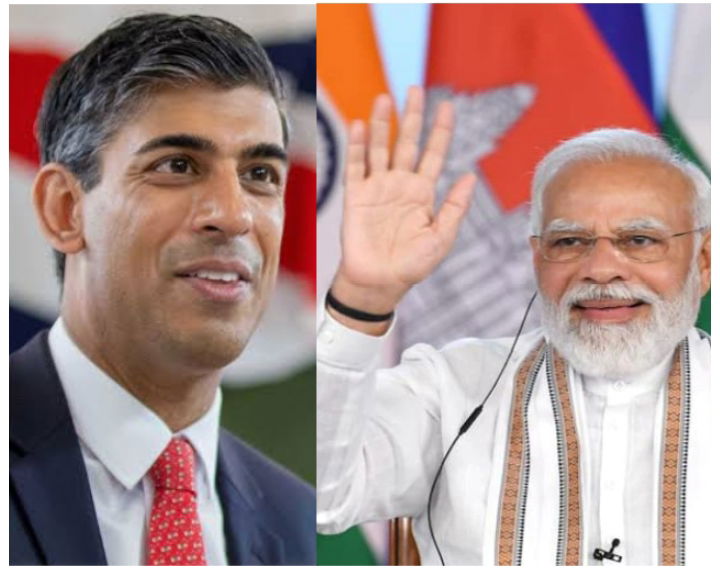Diversity among India’s leadership is significant.


Writer – Balbir Punj
The appointment of Indian-origin politician Rishi Sunak as the British Prime Minister (PM) last month was celebrated by Indians at home and abroad. But it also sparked a raft of rancour- bordering on self-flagellation – whether a similar event could happen in India, especially the appointment of a Muslim as PM.
Former Union minister P Chidambaram said the British example was a template worthy of emulation. “First Kamala Harris, now Rishi Sunak…. I think there is a lesson to be learned by India,” he wrote. “As we Indians celebrate the ascent of Rishi Sunak let’s honestly ask: Can it happen here?” asked Congress leader Shashi Tharoor.
But it is important to remember that Sunak got the top job because the Conservative Members of Parliament (MPs) saw in him a thoroughbred Briton with a proven track record, including a successful stint as the finance minister who steered the country through Covid. They expect him to succeed, where his two predecessors, Liz Truss and Boris Johnson, flopped. Sunak’s cultural and religious identities were completely irrelevant to the context.
Sunak’s grandparents moved from Punjab to East Africa in the 1930s and then to Britain in the 1960s. Born, brought up and educated in the United Kingdom (UK), Sunak’s Hindu roots and the English mores of the adopted land of his parents never clashed. Both Sunak and his family moulded themselves to seamlessly merge into the local milieu.
The UK, plural and secular in everyday life, is a declared Christian nation with the Church playing a pivotal role. The British monarch is the supreme governor of the Church of England, and 26 bishops (Lords Spiritual) sit in the upper house of government, the House of Lords. These bishops can (and do) vote on legislation, make interventions, and lead prayers at the start of each day’s business.
In England and Wales, some clergy members outrank the PM office in the order of precedence. The list is understandably headed by the royal family, followed by the Archbishop of Canterbury. Then come, assuming the post of lord high steward is vacant (as it usually has been since 1421), the lord chancellor, and the Archbishop of York, followed by the PM.
Under the 1944 Education Act (revised in 1996), a third of State-funded schools are designated with a religious character. The Church has a clearly defined role in governance arrangements and the preservation of the religious character of a faith school. A million children are educated in church-run institutions at the State’s expense. Neither Sunak, nor other British domiciled Hindus, have ever questioned any of these practices.
The British Broadcasting Corporation (BBC) has been touted as a symbol of British multiculturalism. By law, each household in the UK has to pay a licence fee of £159 a year for colour for TV sets. Almost £3.7 billion was raised in licence fees in 2019, accounting for about 76% of BBC’s total income of £ 4.9 billion. Notwithstanding its independent pretensions, the media organisation is an extension of English soft power; in Rudyard Kipling’s words, shouldering the “white man’s burden”.
Isn’t the Indian media (television, print and films) also a smorgasbord of various communities and ethnic groups that enrich the country’s diversity together? Muslims, thanks to their talent and networking, figure prominently in all facets of Bollywood – production, music and acting.
When we ask whether an event such as the appointment of Sunak can be repeated in India, some more questions beg an answer. Why has there been no non-Sikh chief minister of Punjab when 40% of the population is from other faiths? Why, in the aftermath of Captain Amrinder Singh’s resignation last year, did reports emerge that Sunil Jakhar was ignored in favour of Charanjit Singh Channi? At the time, some senior leaders hinted that the party wanted to see another Sikh in the top job, not a Hindu leader.
The erstwhile state of Jammu Kashmir had over 30% non-Muslim population. Why, then, in its entire history, could it not have a Hindu or Buddhist chief minister? A similar question can be posed in the Christian-dominated Northeastern states of Nagaland, Meghalaya and Mizoram, which have never had a non-Christian chief minister.
In contrast, several predominantly Hindu states have had Jain, Muslim or Christian chief ministers – Mohammad Koya (Kerala), Abdul Rahman Antulay (Maharastra), Syeda Anwara Taimur (Assam), Abdul Ghafoor (Bihar), Barkatullah Khan (Rajasthan), MO Hasan Farook (Puducherry), Mohammed Alimuddin (Manipur), YS Rajasekhara Reddy and YS Jagan Mohan Reddy (Andhra Pradesh) and Vijaybhai Rupani (Gujrat). Similarly, Manmohan Singh was PM of India for a decade. No questions were asked about their faith, and rightly so.
India also had three Muslim presidents, Zakir Husain, Fakhruddin Ali Ahmed and APJ Abdul Kalam. Mohammad Hidyatullah was the only person in the history of the Indian Republic to serve as Chief Justice of India, vice-president and then President, albeit in an acting capacity.
Can a Muslim become India’s PM? There’s no bar, and the Constitution and the timeless plural Indian ethos allow it.
Balbir Punj is a former Member of Parliament and a columnist. The views expressed are personal.
DISCLAIMER: The author is solely responsible for the views expressed in this article. The author carries the responsibility for citing and/or licensing of images utilized within the text.
